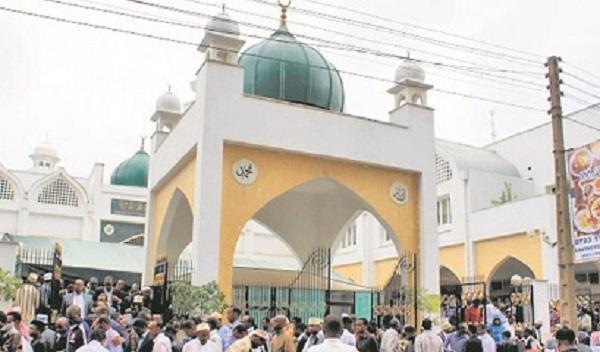Kenya's Largest Mosque Is Center of Attraction in Ramadan

The food data-x-items were being sent to Jamia mosque, Kenya's largest mosque, located in Nairobi's central business district.
It is also a vital location for Muslims from all over East Africa, as it frequently hosts major Islamic events.
"I must help my Muslim brothers and sisters, or that child who doesn't have any means of getting food during Ramadan," Entrepreneur Swaleh Mwangeka said.
"I must show generosity as God has shown to me."
Mwangeka was speaking while uploading his pick-up truck with cooking oil, flour and other foodstuffs intended for distribution to the poor.
"This is how I show gratitude for the blessings I have received. I don't want to imagine less fortunate Muslims going without Iftar or suhoor this month, when Muslims abstain from food and drink during daylight hours," Mwangeka said.
"I save up every year just for this. We're welcoming the holy month by feeding and clothing the less fortunate during this time of intense prayer and fasting," he added.
Jamia mosque, an important center for Muslims in Nairobi, draws thousands of worshippers from across Kenya to observe prayer.
"We will pray, fast and recite the Holy Quran throughout the month, as we seek forgiveness and guidance from God," said Sheikh Mohdar Khitamy, chairman of Kenya's Supreme Council of Muslims in Mombasa.
Muslims in Kenya are 20-30 percent of the 43 million population, with the religion having arrived in East Africa more than 1,000 years ago thanks to Muslim traders from Oman.
Source: IINA



